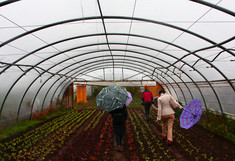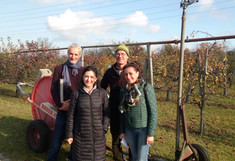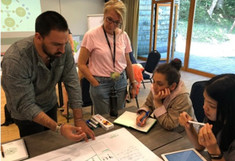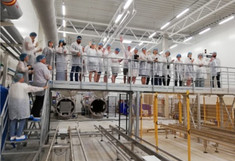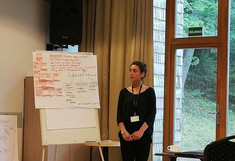February, 2020: Celebration, dissemination and final training
-
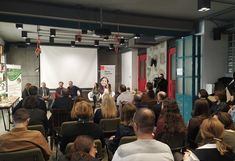 4 Bilder
4 BilderCelebration of the acceptance of the Armenian master program of organic agriculture (1) Copyright: ICARE -
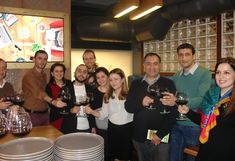 4 Bilder
4 BilderCelebration of the acceptance of the Armenian master program of organic agriculture (2) Copyright: ICARE -
 4 Bilder
4 BilderFinal teaching training day at ICARE foundation Copyright: ICARE -
 4 Bilder
4 BilderStakeholder committee meeting at ICARE foundation Copyright: ICARE
During the final visit of the Austrian partners, the BOAA project team organized a final teacher training, stakeholder meeting and was able to celebrate the acceptance of the master program for organic agriculture.
Since 2017 academic and non-academic partners have worked together in the BOAA project to create the first master program of organic agriculture in Armenia and the wider Region. Finally, on February 6th Armenian organic stakeholders, officials and the teaching team from the Armenian National Agrarian University (ANAU) as well as members from BOKU University celebrated the acceptance of the organic agriculture master program together with the students and an interested audience. The program got accepted by the The Ministry of Education, Science, Culture and Sports of RA in December 2019.
The head of the "Organic Armenia" Association, Ms. Lusine Nalbandyan, the rector of ANAU, Dr. Vardan Urutyan, and Valentin Fiala from BOKU University expressed their appreciation for the program and talked about the importance of the growing organic farming sector for Armenian agriculture and society. Afterwards Hasmik Hovakimyan and Astghik Sahakyan explained the milestones of the BOAA project and the main characteristics and benefits of the organic master program to the present attendees. In addition, also the new advertising video for the program was presented. Potential future students showed already a huge interest in the new organic master that will start in September 2020.
The days before the celebration were used to organize a final teaching training day and a stakeholder committee meeting. During the training, members of the ANAU teaching team shared their experiences from a variety of exchanges and workshops they participated. In addition, the teaching team assessed the effectiveness of different teaching methods and discussed how they could be implemented in their courses. During the stakeholder committee meeting, the stakeholders evaluated the process of the BOAA project and discussed the future development of the organic agriculture master program. BOAA team also worked together on establishing ground rules for the team and had the last book club discussion in the scope of BOAA project.
More information about the organic agriculture master program and the BOAA project can be found here.
November, 2019: Armenian project partners visit Austria
Professors from Armenian National Agrarian University (ANAU) visited Vienna to learn how organic farming is practiced and taught in Austria.
Thanks to extra funding from an Erasmus+ mobility grant, the University of Natural Resources and Life Science (BOKU) was able to host an organic agriculture and teaching training for our partners from ANAU.
From November 4th till November 10th 2019, two Armenian professors visited BOKU. Our guests participated in several courses from the master program of “organic agricultural systems and agroecology” - covering topics like ethics, local knowledge or organic regulations and certification - and discussed content and teaching methods with lecturers from BOKU. Furthermore, specific teaching exchange meetings between the visiting professors and relevant teachers from BOKU were organized.
In addition, our Armenian guests were able to visit BOKUs teaching and research site in Jedlersdorf. Members from Jedlersdorf and the Institute of Viticulture and Pomology gave us a long and very interesting tour. Research facilities and field trials for fruit and vegetable production were examined and the integration of research, courses and master students were discussed. The insights provided many inspirations for the future use of the new seven-hectare organic training facility of ANAU.
Finally, excursions to organic farms and other places of the Viennese organic agriculture system were organized. “Ochsenherz” as a prime example for community supported agriculture (CSA) was visited and it was discussed how such an alternative approach to organic marketing could work in Armenia. To contrast this alternative way of marketing also other points of sale for organic products were visited.
June, 2019: Promoting a young researcher to participate in the Organic Leadership Course
Margarit Tigranyan, a young staff member at the Armenian National Agricultural University, was selected to take part in a leadership course in organic farming.
The Organic Leadership Course (OLC) is organised annually by the International Federation of Organic Agriculture Movements (IFOAM) and takes place in a new country connected to organic agriculture. In 2019 the OLC was held in Lithuania from 22nd to 29th of June and addressed the following main topics: organic agriculture pioneers; the history of the organic movement; the IFOAM organic principals of Health; Ecology, Fairness and Care; certification, standards and regulations; as well as alternative systems such as Internal Control Systems (for group certification) and Participatory Guarantee Systems (designed for countries or regions where funding for official certification is difficult).
Margarit Tigranyan, a young female researcher within the APPEAR project “Building Organic Agriculture in Armenia” was among 20 participants. BOAA aims at developing an organic agriculture master's program curriculum at ANAU. Margarit will teach plant protection once the master programme has started at the Armenian National Agricultural University.
Due to diversity of the participants and international nature of the course Margarit learned about organic farming, particularly in a global context. She states that for her it is very important to be aware of global developments in this field, to understand the fundamentals of organic and to share her knowledge with the rest of the team.
The OLC course encompassed a diverse range of topics, including fundamentals of the organic sector, organic value chains, and organic guarantee systems to name a few. Aside from the indoor training sessions, participants had a unique chance to visit the Auga group, which has 38,000 hectares of ecologically certified fields. In addition to the 8 days of the face to face course, OLC students will also have webinars throughout the year where trainers give more detailed information concerning additional organic topics such as the International project environment, IFOAM advocacy, and Organic 3.0 developments.
The second part of the OLC course will be held in Germany in 2020. For that part, the participants will explore more about third party certification. Furthermore they will present an organic sector development strategy that they have been working on individually for their respective country. The author of the winning strategy will join the annual Biofach event in Germany. Margarit would be very excited to join Biofach, as it is the largest organic trade fair in the world.
Margarit underlined that she will present the knowledge gained to her fellow BOAA teaching team colleagues. Furthermore she stressed the importance of the valuable international organic network that she has built during the course which will enable future cooperation.
IFOAM provides partial scholarships to selected candidates, so those who are interested in organics may apply for this unique opportunity. Margarit Tigranyan‘s participation was also possible thanks to partial funding by APPEAR.
June, 2019: Last but not least
-
 5 Bilder
5 BilderPhoto: Astghik Sahakyan, Hasmik Hovakimyan and Milena Klimek -
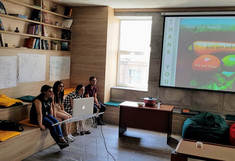 5 Bilder
5 BilderPhoto: Astghik Sahakyan, Hasmik Hovakimyan and Milena Klimek -
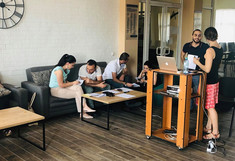 5 Bilder
5 BilderPhoto: Astghik Sahakyan, Hasmik Hovakimyan and Milena Klimek -
 5 Bilder
5 BilderPhoto: Astghik Sahakyan, Hasmik Hovakimyan and Milena Klimek -
 5 Bilder
5 BilderPhoto: Astghik Sahakyan, Hasmik Hovakimyan and Milena Klimek
The final week of June, 2019 wrapped up the last official training week for the BOAA teaching team. Although individuals will still participate in select trainings, the group training phase of the BOAA project has come to an end. For the week of June 24th-28th Austrian coordinator Milena Klimek visited Yerevan to give input on Ethics in Organic Agriculture as well as Qualitative Research, Methods and Data collection. In both days of training there were theoretical inputs as well as hands-on practice. An example of this: Prior to the visit, with the help of APPEAR PhD candidate Hasmik Hovakimyan, volunteer master’s students from ANAU and ATC prepared a cooking activity to illustrate innovative teaching and learning approaches in the Ethics class. They were given an article on animal welfare to read before attending the teaching team’s ‘Organic Book Club.’ At the book club they discussed the article with the whole teaching team. This prepared them for their assignment: to procure food and cook and eat a meal together with connections to the article and then present the meal and the article to the teaching team. The activity came across as a success and both the student’s experiences were discussed (as this is a very uncommon assignment in Armenian pedagogical spheres) as well as the teaching team’s impressions. The training week also focused on a group workshop with the teaching team to decide the structure and nature of the Master’s Seminar within the curriculum. Additionally, the team shared what assistance they still need from the coordinators to get more information for their individual courses and discussed next steps.
The Austrian coordinator also had a chance to lead an Organic Book Club meeting, moderating the discussion around an article. It was determined that the book club has been a fantastic informal way for the teaching team to improve their English, broaden their organic knowledge through critical discussion and also build community within the team itself. The team has been meeting once a month, rotating moderators within the group since September, 2018. There has been a significant improvement in English skills including confidence in speaking.
During the visit, a huge project milestone occurred: the finalized curriculum for the entire program was also handed in for acceptance first through ANAU and then at the ministry level.
As the project is moving into its final phase of attracting students and advertisement, another piece of good news was delivered from Rector of ANAU: a 7-hectare Organic training facility has been acquired and can be integrated into courses and master thesis research. The facility includes a small greenhouse, a young orchard, experimental fields and a building large enough to host a class or trainings. This is exciting news for the program as a main focus is on practical experience.
Finally, meetings with the rector and the newly founded organic association were held. The discussion with Organic Armenia, the organic association, was particularly productive in that it ensured connection to many stakeholders, identified synergies between the academic program and the organic sector, and came up with strategies to support each other in the months to come. Although there is much work to do before the project end (February 2020) the confidence the rector has in the program, particularly to use the Organic Agriculture Master’s Program as a model for new programs or the revising of existing ones, is both a great honor and incredible motivation.
May, 2019: Latest BOAA project training in Armenia
-
 21 Bilder
21 BilderPhoto: David Markosyan ICARE and Sasun Mamajanyan ANAU -
 21 Bilder
21 BilderPhoto: David Markosyan ICARE and Sasun Mamajanyan ANAU -
 21 Bilder
21 BilderPhoto: David Markosyan ICARE and Sasun Mamajanyan ANAU -
 21 Bilder
21 BilderPhoto: David Markosyan ICARE and Sasun Mamajanyan ANAU -
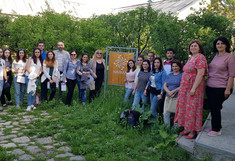 21 Bilder
21 BilderPhoto: David Markosyan ICARE and Sasun Mamajanyan ANAU -
 21 Bilder
21 BilderPhoto: David Markosyan ICARE and Sasun Mamajanyan ANAU -
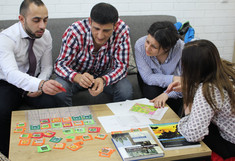 21 Bilder
21 BilderPhoto: David Markosyan ICARE and Sasun Mamajanyan ANAU -
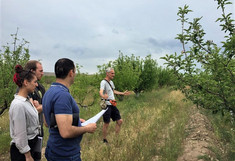 21 Bilder
21 BilderPhoto: David Markosyan ICARE and Sasun Mamajanyan ANAU -
 21 Bilder
21 BilderPhoto: David Markosyan ICARE and Sasun Mamajanyan ANAU -
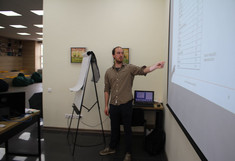 21 Bilder
21 BilderPhoto: David Markosyan ICARE and Sasun Mamajanyan ANAU -
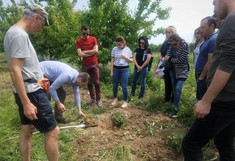 21 Bilder
21 BilderPhoto: David Markosyan ICARE and Sasun Mamajanyan ANAU -
 21 Bilder
21 BilderPhoto: David Markosyan ICARE and Sasun Mamajanyan ANAU -
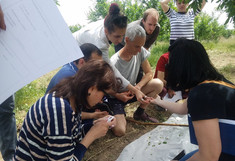 21 Bilder
21 BilderPhoto: David Markosyan ICARE and Sasun Mamajanyan ANAU -
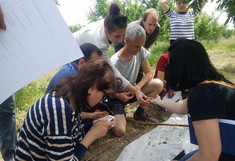 21 Bilder
21 BilderPhoto: David Markosyan ICARE and Sasun Mamajanyan ANAU -
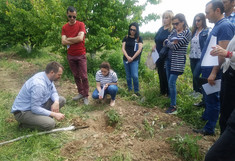 21 Bilder
21 BilderPhoto: David Markosyan ICARE and Sasun Mamajanyan ANAU -
 21 Bilder
21 BilderPhoto: David Markosyan ICARE and Sasun Mamajanyan ANAU -
 21 Bilder
21 BilderPhoto: David Markosyan ICARE and Sasun Mamajanyan ANAU -
 21 Bilder
21 BilderPhoto: David Markosyan ICARE and Sasun Mamajanyan ANAU -
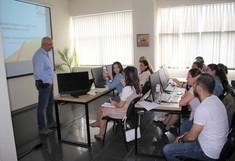 21 Bilder
21 BilderPhoto: David Markosyan ICARE and Sasun Mamajanyan ANAU -
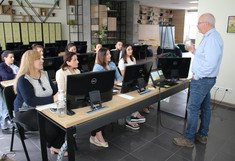 21 Bilder
21 BilderPhoto: David Markosyan ICARE and Sasun Mamajanyan ANAU -
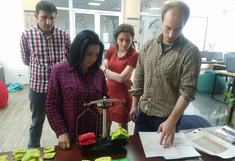 21 Bilder
21 BilderPhoto: David Markosyan ICARE and Sasun Mamajanyan ANAU
Thanks to extra funding from an Erasmus+ mobility grant and support from Armenia’s Shen Organic Training Center and Nairian CJSC, the BOAA project was able to host yet another training for their future Organic Master Program lecturers in Armenia. From May 20th-24th four representatives from The University of Natural Resources and Life Sciences (Boku) as well as one representative from APPEAR conducted a training of their respective topics including both theoretical and practical inputs. 12 lecturers and 2 students from ANAU participated in the training, covering topics from crop rotation, conversion in organic farming, crop production, green manure and the role of legumes in organic production, fruit and nut tree production, the regulatory framework of organic farming, to Gender in Armenia, organic farming and education. The lecturers particularly enjoyed learning hands-on teaching methods. Some examples of such tangible exercises included using a scale and beanbags representing different crops to simulate crop rotations; going into the field to examine the important role of legumes in organic agriculture; visiting an apricot orchard to examine the types of insects and their benefits or hindrances on the crop; and exercises discussing labelling and regulation issues in organic certification. Finally, the gender workshop created a safe and open space to consider gender discrepancies around the globe as well as in Armenia and particularly in agriculture and education. Gohar Shahnazaryan- Director of YSU Center for Gender and Leadership Studies was also invited to give a presentation on the current state of gender equality in Armenia and respective research projects that the Center implements. The workshop allowed the group to grow together in understanding gender issues and how to be sensitive to these issues while teaching and in research, and share them with their students as well as their role in organic farming. We would like to give a big thanks to Martin Sieringer, DI Elke Stinnig, and professors Andreas Spornberger, Reinhard Neugschwandtner, and Christian Vogl to make this week so successful. The information they shared with our group of lecturers was invaluable and their impacts will be felt in the curriculum and program for years to come.
After this weeklong training, another stakeholder committee event was hosted at Nairian organic cosmetics. Not only was a tour given at this fellow stakeholder’s establishment, but there was time for BOAA coordinators to bring stakeholders up to date with the project and more importantly to connect lecturers with organic practitioners to specifically work on stakeholder integration within their classroom and coursework. A ''speed dating'' format was used during the meeting with the stakeholders. The goal was to find appropriate partners to help add real-world examples within their teaching by creating meaningful relationships and connections to the Armenian organic sector. 10 organic stakeholders participated in the event.
The next steps in the final year of the project are to finalize course materials and teaching documents as well as raise awareness and advertise the program itself.
September, 2018: Organic Agriculture Training at the Armenian National Agrarian University
-
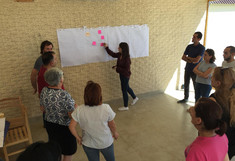 22 Bilder
22 BilderLearning how to model a farm system with Valentin Fiala -
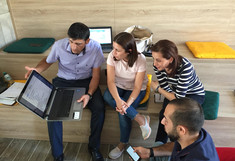 22 Bilder
22 BilderGroup work -
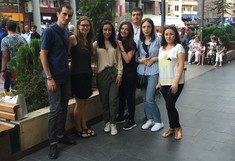 22 Bilder
22 BilderArmenian independence day BOAA gathering! -
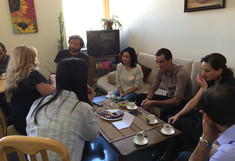 22 Bilder
22 BilderGetting to know each other better often happened around coffee -
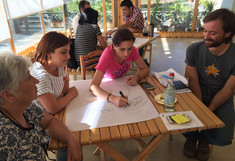 22 Bilder
22 BilderSystems and scenario building -
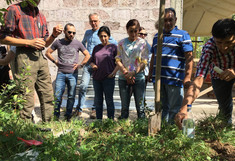 22 Bilder
22 BilderLearning about soil fertility and plant nutrition with Jürgen Friedel -
 22 Bilder
22 BilderAragats, the highest mountain in Armenia -
 22 Bilder
22 BilderA group tour of Greenlane organic training center -
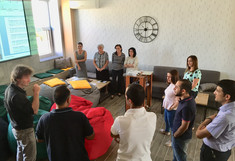 22 Bilder
22 BilderCrop rotation group feedback round with Bernhard Freyer -
 22 Bilder
22 BilderDried fruit in solar dryer at farm visit to Chir’s House Guest Center -
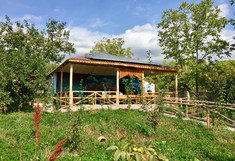 22 Bilder
22 BilderChir’s House Guest Center’s outdoor classroom -
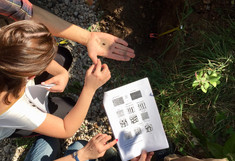 22 Bilder
22 BilderGroup soil assessment with Jürgen Friedel -
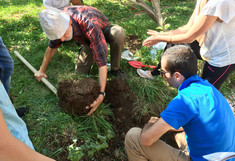 22 Bilder
22 BilderGroup soil assessment with Jürgen Friedel -
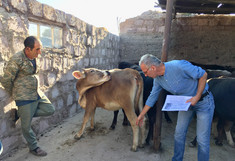 22 Bilder
22 BilderAnimal welfare assessment with Christoph Winckler -
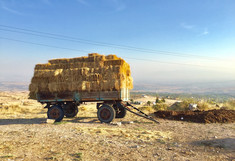 22 Bilder
22 BilderHay harvest in Armenia -
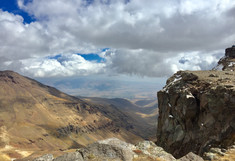 22 Bilder
22 BilderView from Aragats -
 22 Bilder
22 BilderSolar fruit dryer at Chir’s House Guest Center; obsidian stone stores heat. -
 22 Bilder
22 BilderBOAA stakeholder meeting -
 22 Bilder
22 BilderInteractive group presentations by lecture teams -
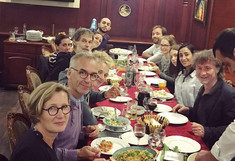 22 Bilder
22 BilderDinner with Armenian partners and Boku lecturers and friends -
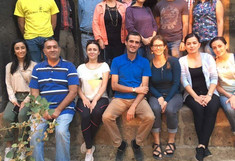 22 Bilder
22 BilderGroup photo of training at Mughni Monestary -
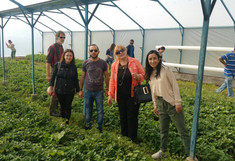 22 Bilder
22 BilderOrganic strawberry greenhouse at Chir’s House Guest Center
Boku and ANAU professors and lecturers worked together during an in-depth training on various organic agriculture subjects, practical experiences and steps forward in curriculum building
This past September, within the project of ''Building Organic Agriculture in Armenia'' (BOAA), the Agribusiness Teaching Center of The Armenian National Agrarian University (ANAU) hosted a 10-day organic agriculture and curriculum building training.
From September 24th- October 3rd 2018, 5 visiting professors and lecturers from the University of Natural Resources and Life Sciences, Vienna (BOKU) participated and contributed in this training—Professors Christoph Winkler, Jürgen Friedel, Bernhard Freyer and lecturers Valentin Fiala and Milena Klimek. 10 future organic agriculture lecturers were trained in crop rotation; soil fertility and plant nutrition; animal production, husbandry and welfare; systems thinking and scenario development; and introduction into organic agriculture. Within this training two farms and one training center were visited to complete practical, in-field exercises. In addition to organic farming content, small group and individual work was facilitated to further curriculum and specific course development.
Stakeholders from the ministry of education, local VET schools, organic farms, the Armenian organic certification body, and various ANAU staff and students contributed to this training through presentations, discussions, and participation in lectures and exercises. This exchange ensures the continuation of successful partnerships among interested parties in the Armenian organic sector and the organic master’s program.
Additionally, a well-attended public event introduced: organic agriculture in general (given by Professor Bernhard Freyer); ‘organic’ impressions from Austria (Hasmik Hovakimyan); and the BOAA project itself (Astghik Sahakyan).
The training left many positive impressions on both Austrian and Armenian participants and created a clear understanding of the next steps for the project, namely: specific course development and its compilation to submit to the ANAU for approval. Both project partners eagerly await another in-depth training tentatively planned for May, 2019, made possible by an Erasmus+ mobility grant.
July, 2018: Armenian Guests to BOKU in May 2018
-
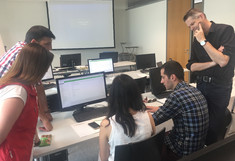 3 Bilder
3 BilderE-Learning training with Claus Reiner Michael (Photo: Milena Klimek) -
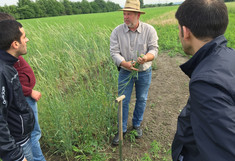 3 Bilder
3 BilderFarm visit to Vermigrand, Alfred Grand’s working and research farm particularly focused on soil health, experimentation of crops and vermicomposting (Photo: Milena Klimek) -
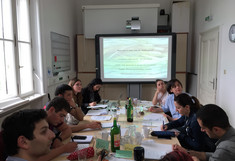 3 Bilder
3 BilderWorkshop on teaching methods and tools (Photo: Milena Klimek)
Sharing ideas on the philosophy and the approaches of organic agriculture. This past May the working group for Transdisciplinary Systems Research hosted five guests from Armenia within the scope of ''Building Organic Agriculture in Armenia'' (BOAA) project.
From May 14th-24th Armenian National Agrarian University professors Sasun Mamajanyan, Narine Hovhannisyan, Hovsep Grigoryan, project assistant Astghik Sahakyan and organic tea producer Areg Galstyan participated in trainings and field visit through and at BOKU.
The overall goal of the visit was for the guests to be introduced to the organic landscape of Austria, as well as to be trained in innovative teaching methods and tools.
With a very dense program, the visit had three main components: 1) Pedagogical and didactical trainings and 2) excursions to organic farms, schools, businesses and organizations showcasing a variety of production methods, processing, marketing, food and philosophies and 3) sharing experiences on master programmes in organic farming.
Although there is much more work to be done, the visit enabled necessary networking, new organic knowledge, pedagogical training, and it also helped illustrate the many possibilities for the organic sector in Armenia. This is exemplified by a few reflective experts from the guests themselves:
“Through a series of practical and field activities and active discussions, it was possible to clarify many aspects of organic agriculture Master's program to be developed and implemented at Armenian National Agrarian University (ANAU). Master's program will introduce new and effective teaching methods as well as contemporary solutions to current issues of organic agriculture.”
“During field visits specifications of different organic farms were revealed and the mandatory conditions required for conversion to organic production became clear. In this regard, observation and discussion over buffer strips in the agro-landscape has been of great interest.“
“By taking into account different ways of thinking of different specialists and students about the curriculum we can find a completely new approach to the content of the curriculum.”
“...an important fact that's definitely worth duplicating in Armenia is social responsibility of organic farms in Austria (be it involving students in farm works or organizing social events in farms). The reason behind active social role of organic farms in Austria is the philosophy of organic agriculture: that is, for organic farmers in Austria, organic production is not solely profit making mechanism, it is the philosophy and the approaches of organic agriculture that are of high importance to them. Lessons learnt: efforts should be put not solely on teaching the students how to grow organic crops, but explaining and showing them the philosophy of organic agriculture, how organic agriculture can benefit organic producers, mother nature and society as a whole.”
May, 2018: Armenian Team Visit And Training In Austria
Five of the Armenian BOAA team members will be arriving on May 14th-24th, 2018 to Vienna. The goal of the visit is to introduce the Armenian partners to organic in Austria and methods and tools for teaching. This means we would like to first introduce them to the organic ‘landscape’ in Austria. From organic education, to certification and processing, they will be given tours and a taste of the variety of organic farms, marketing, processing, stores, food, etc. that exist in and around Vienna. Second, teaching tools, methods and philosophies will be discussed and integrated into the current curriculum draft. In this step they will be introduced to a teachers manual illustrating a systemic pedagogy and various methods to both integrate stakeholders but also varieties of teaching and learning styles. This will enable a discussion towards a common teaching philosophy. Here the group will discuss more in depth, how to be a facilitator rather than a lecturer (represented in a ‘breaking the boundaries in learning’ workshop presented to the core lecturers group), how to integrate stakeholders in your classroom, and how to offer project-based courses. Moreover, the teachers will be introduced to common teaching and research tools such as endnote and moodle and e-learning tools. They will have time to integrate prepared lectures into moodle, as hands-on exercises and be able to take them home with them to modify and use in their classrooms. Finally they will be introduced to the professors that will be coming with us during the September training in Yerevan, beginning hopefully sustaining future partnerships.
May, 2017: Kick-Off Meeting in Yerevan
-
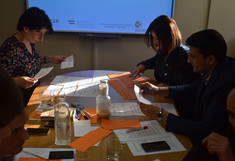
ANAU lecturer curriculum development (Photo: Milena Klimek)
As the project will be completed within three years, BOAA concluded its first phase in which project team members met up for a kick-off meeting lasting 2 weeks from May 21st-June 4th 2017 in Yerevan. The meeting entailed the following actions:
- Implementing a comprehensive participatory assessment of educational needs in the organic sector in Armenia;
- Understanding the logistics and steps of implementing a masters program in the ANAU system; and
- Creating partnerships with stakeholders interested in collaboration.
To achieve these goals they conducted a set of 5 focus groups—with students; faculty and staff; organic stakeholders; women farmers; and organic farmers. These focus groups significantly helped them—particularly while it was the Austrian team members’ first time in Armenia—to understand both the organic sector’s needs but also project related challenges as well as to network.
They also interviewed various farmers, industry workers and processors that were identified as key stakeholders. The Shen and Green Lane organic training centers were visited as well as a few farms around their regions to obtain a picture of the farming situation and the training level of organic agriculture in the field.
Separate meetings with the rector, vice rector and masters curriculum advisor at ANAU were organized to understand the requirements of implementing a masters program at ANAU. Here they realized that with the help of the Agribusiness Teaching Center (ATC) model at ICARE, BOAA will inevitably help boost the quality of opportunities, teaching methods and student experiences at ANAU.

